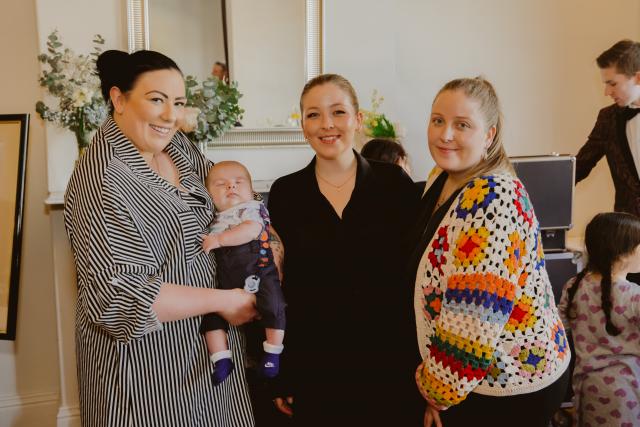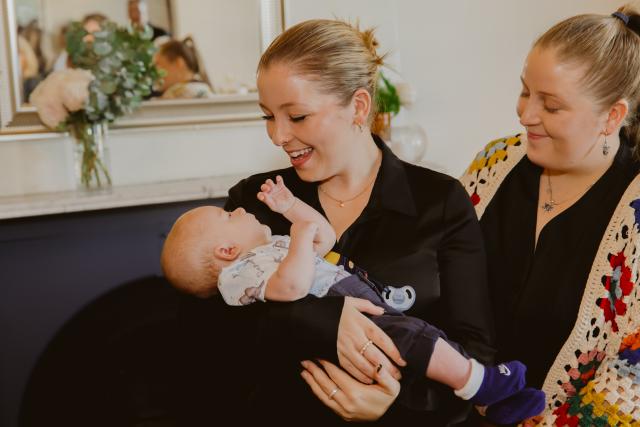
By Matthew Sims
Altona Meadows resident Emily Toby has thanked the team at Monash IVF’s Sunshine clinic for helping bring her son Damian into the world.
She started her in vitro fertilisation (IVF) journey due to a number of fertility issues, including endometriosis and polycystic ovary syndrome [PCOS].
Ms Toby was one of a number of new mothers, IVF babies and those who were born via IVF from the western suburbs, who came together last month to celebrate more than 50 years of Monash IVF.
She said the experience with Monash IVF was “wonderful” from choosing a sperm donor to talking to a specialist psychologist.
“It was just very welcoming,” Ms Toby said.
“It can be an up and down rollercoaster.”
For her, the journey involved a number of ups and downs, including being diagnosed with ovarian hyperstimulation syndrome during the process, but she received support from Dr Gareth Weston, her mother Shirley and her partner Jessica Brophy, who she met two weeks before the embryo transfer.
Ms Toby said she was grateful to all Monash IVF staff for helping her bring Damian into the world.
“He is very healthy and happy,” she said.
“Monash helped me achieve a dream.”
Ms Toby said while she was “lucky”, it was worth for anyone considering IVF to research the potential risks and rates of success.
“Don’t doubt yourself if it doesn’t work the first time,” she said.
Monash IVF chief executive and managing director Michael Knaap said the past 50 years of IVF’s history has seen it transform from an experimental procedure to having one in 20 Australian children born via IVF.
“Starting a family isn’t always easy and for some people, it can take a good deal of bravery to become parents,” he said.
“After delivering more than 50,000 babies over the past 50-plus years, we understand that better than most and why it’s important to support people who want to become parents.”








